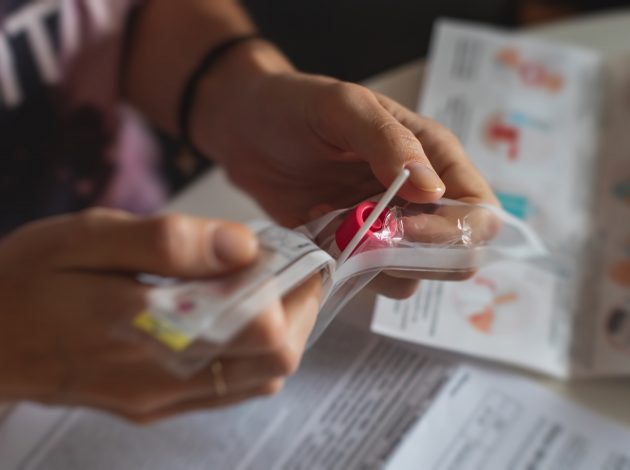UK Infections and Antibody Survey passes key milestone as 3 millionth swab test collected

Set up in days to meet an urgent need for better information on how Covid-19 was affecting the community population, the UK Covid-19 Infection Survey has become a indispensable source of data on the pandemic. With more than three million swab tests conducted in over two hundred thousand households, the National Statistician thanks and pays tribute to everyone involved.
“When the COVID-19 pandemic began early last year the UK faced a critical lack of vital data on infections in the population at large.
To get the first reliable picture of how the virus was spreading in our communities, the Office for National Statistics (ONS) and our partners moved rapidly to launch the COVID-19 Infection Survey (CIS) on 26 April as part of the government’s response to the pandemic.
Randomly selected households across England were invited to take part by completing a questionnaire and self-administered swab test to detect infection with the SARS-CoV-2 virus, the virus that causes the COVID-19 infection.
The CIS brings together the expertise of the Department for Health and Social Care (DHSC), Oxford University and specialist delivery partners from the field of medical research and survey operations.
Working with the devolved administrations, the survey has seen a rapid expansion to cover households in Northern Ireland, Scotland and Wales.
By testing thousands of people in households representative of the population, regardless of symptoms, the CIS is a very robust indicator of infection levels in the community. The survey has received widespread praise, with the BBC saying: “The most reliable figures are from the Office for National Statistics”. It has been widely regarded as the flagship surveillance study, and one of the largest regular surveys of its kind worldwide.
More than 3 million swab samples have now been collected from more than 215,000 households. Each and every one of these swabs is another crucial piece of the jigsaw needed to increase our understanding of infection rates in communities across the UK, providing timely and trusted data week-in, week out and informing key decisions.
Alongside swab tests, selected participants are invited to give blood samples which test for antibodies. Antibody prevalence could be obtained from a previous COVID-19 infection, or from vaccination.
We then release data on a fortnightly basis, giving an indication of antibody prevalence in communities. As the focus begins to shift as vaccination programmes are rolled out across the UK, our antibody analysis will become increasingly important to provide quality, timely insight on the path of the virus.
Our task from here onwards is to become a key source of data on the impact of vaccinations and their effectiveness in preventing infections.
This milestone is a tribute to everyone in the population who has taken part, everyone who volunteered and all my colleagues who have worked so hard.
Thank you.”